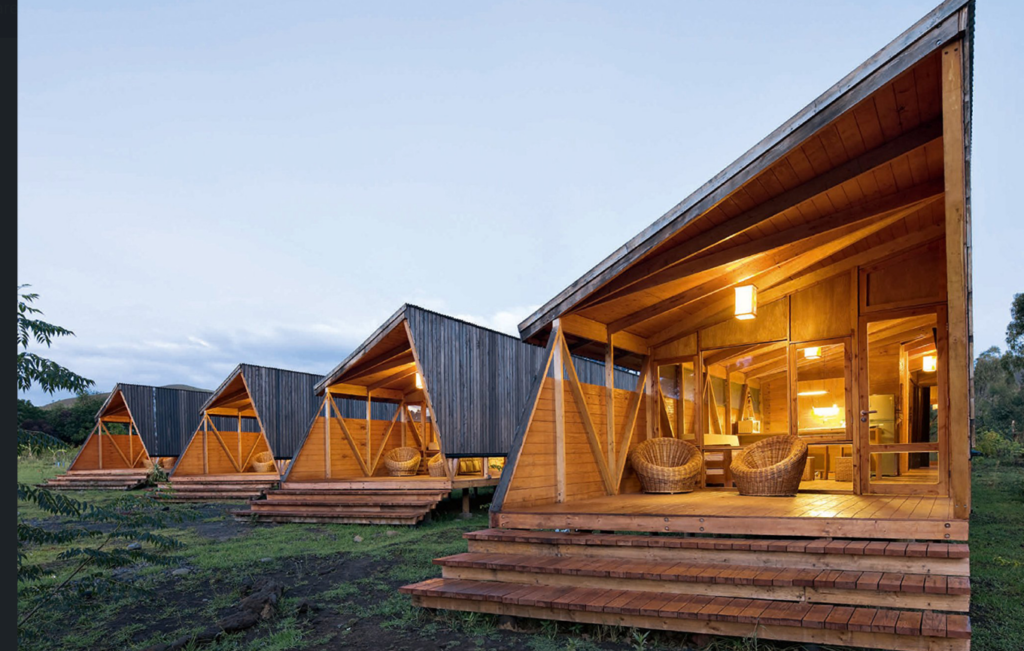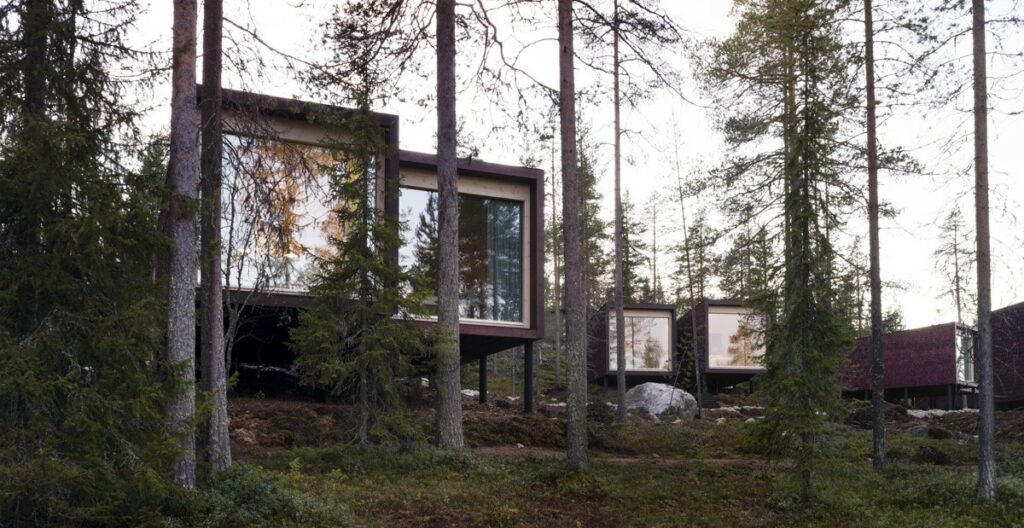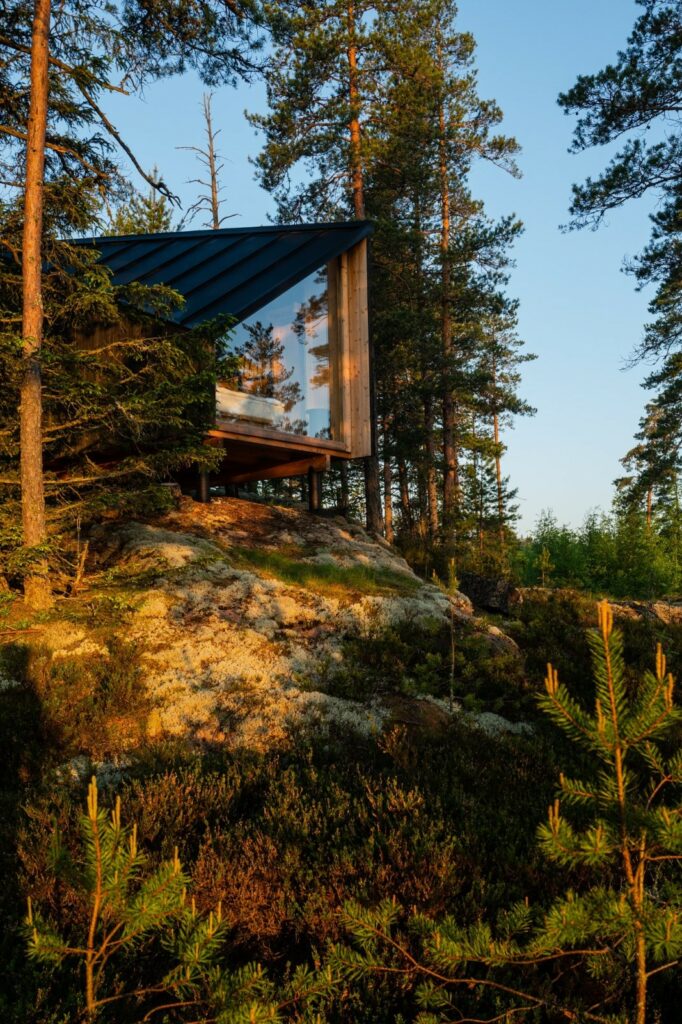In a world where people are demanding more sustainable travel, hotel developments, have to adapt. In this article, we’ll explore some of the ways that hotels and development can make themselves more eco-friendly and sustainable, thanks to modular architecture and construction, while remaining attractive to guests.
In the last 10-15 years, many countries have begun to pay more attention to environmental issues, natural resources, and global warming.
During my career as hotel General Manager and project manager of hotel projects, sustainability or ecological architecture was rarely discussed. In green field resort projects, the land was cleared for construction site before the construction commenced. Clearing the site meant that the land was bulldozed, and all the trees, flora and fauna were destroyed. After the hotel was built and completed, some landscaping was created to bring the beauty of the original nature for the guests to enjoy, or hopefully to enhance nature. This meant planting saplings, fresh flower beds and finally covering the rest of the landscape with topsoil.
Thinking about it today it is inconceivable that as a traveler you would accept to stay in a beautiful hotel if the nature surrounding it is not also beautifully grown embracing the hotel. I remember having to discount the hotel rates to pacify guests who had booked the hotel based on glossy marketing pictures of the interior of the hotel, and guests disappointed when they stepped out of the hotel reminded of the construction site.
Modular architecture and modular construction
Perhaps the most exciting potential future for hotels has been the development of modular architecture. This type of building project takes sustainability from design to construction by using materials that are not only environmentally friendly but also re-usable and recyclable.
Modular construction is already a reality in many industries, including transportation and shipping, but it’s only recently begun to be used on large-scale building projects and now hotels.
There are several advantages to this approach:
Traditionally 70% of emissions were emitted during the lifetime of a building and 30% during construction. With buildings getting more efficient this has turned upside down. Now a days 70% is emitted during construction and 30% during operation.
An interesting project using modular architecture and construction is The Snoozebox Hotel. The hotel has been designed to be disassembled and reassembled easily and quickly, to offer accommodation to those who decide to participate in music festivals or at sporting events. The prefabricated solutions can, be assembled in multiple configurations from 40 to 400 rooms. The hotel can be made fully operational in just 48 hours, with even air conditioning, flat screen TV and WiFi in each room.
How about overcoming the challenges and build a hotel for Easter Island? The Morerava Cabins were built in Chile, and then shipped and assembled on Easter Island, where they were perfectly integrated with the surrounding environment. The boast solar panels and rainwater harvesting systems to reduce resource consumption and a lightweight roof, and the thin walls give the individual hotel units a rustic quality that goes well with nature.

And in Arctic Lapland you can find our Arctic Tree House Hotel where the principles of modular architecture and construction have been followed, and the luxury is the nature surrounding the hotel units.
The Artic Nature is very fragile and slow growing. The spatial modules were built elsewhere and lifted on stilts to disturb the nature as little as possible. This way it’s also been easy to add extra rooms over time. Fun fact the minimal moss and soil removed under the stilts were placed on the roof of the cabins.

Finally, the award winning Space of Mind cabins which are pre-fabricated modular cabins designed to be easily transported to isolated locations are suitable to be converted to a micro hospitality resort.
Entrepreneur couple Tiia and Craig Mc Donald a Finn-Brit couple who after a decade of financial consulting work internationally decided to return to Finland to open Hilltop Forest Micro Hospitality Resort. They chose Space of Mind Cabins units for their resort and spa. The forest is the key selling point as it remained untouched.

While the hotel industry has traditionally focused on offering guests a comfortable, clean environment to stay in, sustainable travel is becoming more and more popular. The idea of spending time in nature before or after a long trip is becoming increasingly appealing to both travelers and businesses.
As a result, hotels are changing their design to meet these demands for more eco-friendly experiences.
The future of travel and hospitality is one that we can all look forward to. With the environment at the forefront of our minds, there is no doubt that hotels will continue to evolve in order to cater to their guests’ needs. Being conscious about how much impact your hotel has on its surrounding environment should be something every owner considers before opening a new establishment.
Hospitality Tomorrow is a blog series by Sam-Erik Ruttmann our Director of Global Hospitality Development.
Studio Puisto
Mariankatu 7 A 4
00170 Helsinki
[email protected]